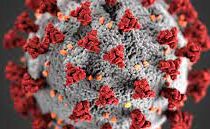How to Prevent and Treat Dementia
Dementia is the loss of memory and thinking ability that occurs in a small percentage of adults over the age of 65. Patients with dementia experience a decline in their mental function and have difficulty making decisions, living on their own, and sometimes have sleep problems. There are many causes for dementia such Alzheimer’s disease and Parkinson’s disease. In this article, we shall discuss how to prevent and treat dementia. We therapies that do not work or have insufficient medical evidence. Check out Dr. Oz’s personal battle against his mother’s Alzheimer’s:
KEY TAKE-AWAYS
- For preventing dementia, we recommend the Mediterranean diet, exercise, social activities, and cognitive brain training. Treating high blood pressure is also very important.
- For treating dementia, we recommend cholinesterase inhibitors like donepezil, memantine, and possibly high dose Vitamin E. Occupational therapy is also very useful.
HOW TO PREVENT DEMENTIA
Preventing dementia is especially important if you have someone in your family who has dementia. While none of these activities are proven to prevent dementia in clinical trials, they may help to delay or prevent dementia symptoms. The key is to implement these therapies into your life as early as possible for them to work most effectively.
Therapies That Might Help to Prevent Dementia
- Lifestyle: We recommend physical exercise and social interaction with family and friends for patients at risk of dementia.
- Diet: We recommend a Mediterranean diet, which is high in fruits, vegetables, nuts and beans. This diet also uses olive oil as a source of fat. The Mediterranean diet also allows a moderate amounts dairy and eggs, as well as white meat like chicken and fish, but very little red meat. The Mediterranean diet is good for your heart health, and it may help prevent stroke and lower your risk for dementia.
- Berries: Blueberries and strawberries seem to slow down memory loss and thinking decline by about 2.5 years in older adults (Ann Neurol. 2012). Plus who doesn’t love the taste of berries?
- Cognitive Training: Brain training activities such as mental activities for memory, reasoning, and thinking speed can have some good short-term effects of about 5 years on the thinking ability of older adults (JAMA 2006). Two online brain training programs that are reasonably priced and are based on scientific studies include BrainHQ (from Posit Science) and CogniFit. We have included a video below about BrainHQ.
- Treating High Blood Pressure: High blood pressure appears to increase the risk of dementia, so please talk to your doctor if you have high blood pressure because you may need to starting taking blood pressure medication.
Therapies That Are Not Proven to Prevent Dementia
- Antioxidant Vitamins: Antioxidants such as vitamin E, vitamin C, beta-carotene (Vitamin A), and selenium have not shown to prevent dementia in clinical trials. For patients who already have dementia, high doses of Vitamin E may be beneficial. See the section below on HOW TO TREAT DEMENTIA.
- B-Vitamins: Vitamin B6, B12, and folate probably do not prevent dementia. Medical reviewers analyzed several medical research studies that enrolled thousands of patients who took B vitamins over several years and found that B vitamins have no significant effect on preventing dementia (Am J Clin Nutr. 2014)
- Cholinesterase Inhibitors: This class of drugs include donepezil (Aricept), rivastigmine, and galantamine. These drugs are first-line medications to treat dementia, but they do not help to prevent dementia. See the section below on HOW TO TREAT DEMENTIA.
- Dehydroepiandrosterone (DHEA): DHEA is a hormone produced by a small organ on top of your kidneys called the adrenal glands. DHEA supplements are promoted to fight the effects of aging. However, several small clinical trials do not show benefit in slowing or preventing decline in memory and mental function in older adults (Cochrane 2006). Therefore, DHEA is not recommended to prevent dementia.
- Estrogen: Some of the largest medical research studies in postmenopausal women have not shown estrogen to be effective in preventing dementia (JAMA 2003). Therefore, estrogen is not recommended to prevent dementia.
- Gingko Biloba: Gingko biloba is an herbal supplement that is used to help with memory. Large clinical trials have not show it to be effective in preventing or treating dementia (Lancet Neurol. 2012).
- NSAIDs (non-steroidal anti-inflammatory drugs): NSAIDs are the most common pain relief medicines in the world and include aspirin, celecoxib (Celebrex), and naproxen (Aleve). NSAIDs are not recommended to prevent dementia because most clinical trials show no benefit and these drugs have a lot of side effects (Arch Neurol. 2008).
- Omega-3 Fatty Acids (Fish Oil): Earlier small clinical trials showed some benefit using Fish Oil to prevent dementia. However, a review of the latest and largest clinical trials have not shown that Fish Oil reduces the risk of dementia (Cochrane 2012).
- Soy Protein: Soy protein did not improve thinking abilities in postmenopausal women in clinical trials (Neurology 2012).
- Statins: Statins are popular cholesterol lowering drugs such as Lipitor (atorvastatin) and Zocor (simvastatin). Although several large medical research studies show a possible link between statin use and a lower incidence of dementia, more research is needed to confirm these results.
- Vitamin D: Vitamin D is generally not recommended to prevent dementia because there are no large clinical trials that prove it works for this condition. More medical studies are needed before a recommendation can be made.
HOW TO TREAT DEMENTIA
Medications and Supplements that Treat Dementia
- Cholinesterase Inhibitors: This class of drugs include donepezil (Aricept), rivastigmine, and galantamine. These drugs are first-line treatments for patients with dementia. We recommend donepezil over rivastigmine or galantamine since donepezil is given only once daily and seems to have fewer side effects. Unfortunately, only a small percentage of patients with dementia will experience a modest benefit from these drugs. Additionally, about 20-30% of patients will also get side effects such as nausea, diarrhea, and upset stomach from these medications. The doctor will usually have their patients try out these medications for about 3 to 6 months before re-evaluating whether the drug is working. If these medications do not work or cause intolerable side effects, then the doctor may add or switch the patient to the medication memantine (Namenda), which shall be discussed next.
- Memantine (Namenda): Memantine is a medication that seems to protect brain neurons from damage. Memantine helps with dementia symptoms that are moderate to severe. Memantine does not have much data for use in patients with mild dementia symptoms. Memantine also has very few side effects, with dizziness being the most common side effect. Memantine is usually used in combination with medications such as donepezil (Aricept). Memantine can also be used alone if the patient gets unwanted side effects from donepezil or similar medications.
- Selegiline: Selegiline is a drug that is FDA approved for Parkinson’s disease. Selegiline has also been studied in dementia due to Alzheimer’s disease. Selegiline might have some small benefit for patients with Alzheimer’s disease, but it is usually not recommended since the evidence for benefit is small and this drug has a lot of side effects.
- Vitamin E: High dose Vitamin E (2000 IU per day) has shown to have some benefit in patients with Alzheimer’s dementia. High dose Vitamin E seems to only help dementia caused by Alzheimer’s disease, rather than dementia from other causes. Additionally, high dose Vitamin E does not seem to work as well when it is combined with Memantine (JAMA 2014). For this reason, high dose Vitamin E probably should not be combined with memantine. Ask your doctor if high dose Vitamin E is right for the patient. Do not use high dose Vitamin E if the patient has heart problems because it can lead to severe side effects.
Non-medication Therapy for Treating Dementia
- Avoiding certain medications: Certain medications (such as antihistamines, overactive bladder meds, tricyclic antidepressants) have anticholinergic side effects that can worsen dementia symptoms. Ask your pharmacist or doctor whether the patient’s medications may be causing side effects that are worsening dementia symptoms.
- Nutrition: Many patients with dementia lose their sense of smell, which leads to lack of appetite and poor nutrition. Caregivers can try adding low-sodium soy sauce or salsa to enhance the flavor of foods. Also adding certain spices to foods (black pepper, paprika, hot peppers, ginger, mustards, radishes, or horseradish) can improve the texture and taste of foods for patients with dementia.
- Occupational Therapy: Occupational therapists are healthcare professionals who can help seniors with dementia improve their day to day functionality. Occupational therapists can train patients and caregivers to learn strategies to cope with daily living. Studies have shown that patients with dementia who undergo occupational therapy improve their thinking ability and in performing daily tasks (BMJ 2006). The patient’s doctor will have more information about occupational therapy programs.
- Sleep hygiene: A good night’s sleep is important to reduce dementia symptoms. Setting regularly scheduled sleep times, keeping the room dark at night, and reducing noise are just a few ways to ensure good quality sleep at night.
Medications & Supplements that Do Not Treat Dementia
- Estrogen: Estrogen replacement therapy has no evidence in treating dementia symptoms. Although one study showed benefit, the majority of trials showed lack of benefit in patients with dementia (JAMA 2004).
- Gingko Biloba: Gingko biloba is an herbal supplement that is used to help with memory. Although Gingko biloba is pretty safe to take, large clinical trials have not show it to be effective in preventing or treating dementia (Cochrane 2009).
- NSAIDs (non-steroidal anti-inflammatory drugs): NSAIDs are the most common pain relief medicines in the world and include ibuprofen (Advil, Motrin) and naproxen (Aleve). NSAIDs are not recommended to treat dementia because most clinical trials show no benefit and these drugs have a lot of side effects (Cochrane 2012).
- Omega-3 Fatty Acids (Fish Oil): Studies do not show that Omega-3 is effecting in treating dementia. In one study, 204 patients with Alzheimer’s disease took Omega-3 for 1 year. The group that took Omega-3 had experienced the same decline in thinking abilities as the group that took no medication (JAMA 2010).
- Prevagen (Apoaequorin): Prevagen is a popular supplement that can be purchased over-the-counter. All of our reputable medical references do not cite Prevagen as reliable therapy to prevent or treat dementia. Although we do not use WebMD to cite medical evidence support, we found their recommendation helpful. WebMD states “People take apoaequorin to prevent the decline in memory and thinking skills that occurs normally with age and to improve memory, but there is no good scientific evidence to support its use for these or other conditions.” Click here to be directed to WebMD’s website for more information.
- Statins: Statins comprise a group of very popular cholesterol-lowering medications such as atorvastatin (Lipitor) and simvastatin (Zocor). A small trial showed that atorvastatin had some benefit in patients with Alzheimer’s disease, but subsequent larger more high quality trials did not show benefit (Neurology 2010). Therefore, we do not recommend statins for treating dementia.
- Vitamin B: Vitamin B was studied in 340 patients with Alzheimer’s disease over 18 months and was found to show no benefit in improving memory or thinking abilities (JAMA 2008).


